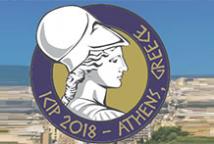
The International Conference on Image Processing (ICIP), sponsored by the IEEE Signal Processing Society, is the premier forum for the presentation of technological advances and research results in the fields of theoretical, experimental, and applied image and video processing. ICIP has been held annually since 1994, brings together leading engineers and scientists in image and video processing from around the world. Visit website.
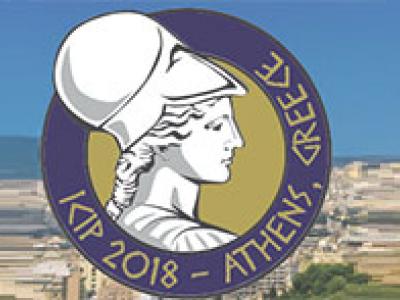
- Read more about BI-RADS classification of breat cancer: a new pre-processing pipeline for deep models training
- Log in to post comments
One of the main difficulties in the use of deep learning strategies in medical contexts is the training set size. While these methods need large annotated training sets, this data is costly to obtain in medical contexts and suffers from intra and iter-subject variability.
In the present work, two new pre-processing techniques are introduced to improve a classifier performance. First, data augmentation based on co-registration is suggested. Then, multi-scale enhancement based on Difference of Gaussians is proposed.
Poster_A0.pdf
- Categories:
 13 Views
13 Views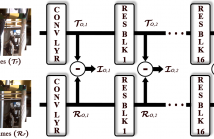
- Read more about MOVING-CAMERA VIDEO SURVEILLANCE IN CLUTTERED ENVIRONMENTS USING DEEP FEATURES
- Log in to post comments
This paper deals with the challenging problem of visual anomaly detection in a cluttered environment using videos acquired with a moving camera. The anomalies considered are abandoned objects.
A new method is proposed for comparing two videos (an anomalyfree reference video and a target one possibly with anomalies) by
- Categories:
 8 Views
8 Views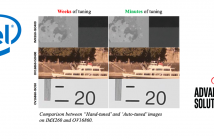
- Read more about Automatic ISP Image Quality Tuning Using Non-linear Optimization
- Log in to post comments
Image Signal Processor (ISP) comprises of various blocks to reconstruct image sensor raw data to final image consumed by human visual system or computer vision applications. Each block typically has many tuning parameters due to the complexity of the operation. These need to be hand tuned by Image Quality (IQ) experts, which takes considerable amount of time. In this paper, we present an automatic IQ tuning using nonlinear optimization and automatic reference generation algorithms.
- Categories:
 133 Views
133 Views
- Read more about AUTOMATIC 3-D SKELETON-BASED SEGMENTATION OF LIVER VESSELS FROM MRI AND CT FOR COUINAUD REPRESENTATION
- Log in to post comments
- Categories:
 43 Views
43 Views
- Read more about A STUDY OF SUBJECTIVE VIDEO QUALITY AT VARIOUS SPATIAL RESOLUTIONS
- Log in to post comments
- Categories:
 9 Views
9 Views
- Read more about CNN-BASED DETECTION OF GENERIC CONTRAST ADJUSTMENT WITH JPEG POST-PROCESSING
- Log in to post comments
Detection of contrast adjustments in the presence of JPEG post processing is known to be a challenging task. JPEG post-processing is often applied innocently, as JPEG is the most common image format, or it may correspond to a laundering attack when it is purposely applied to erase the traces of manipulation. In this paper, we propose a CNN-based detector for generic contrast adjustment, which is robust to JPEG compression.
- Categories:
 17 Views
17 Views
- Read more about Poster - Topological Eulerian Synthesis of Slow Motion Periodic Videos
- Log in to post comments
We consider the problem of taking a video that is comprised of multiple periods of repetitive motion, and reordering the frames of the video into a single period, producing a detailed, single cycle video of motion. This problem is challenging, as such videos often contain noise, drift due to camera motion and from cycle to cycle, and irrelevant background motion/occlusions, and these factors can confound the relevant periodic motion we seek in the video.
- Categories:
 1 Views
1 Views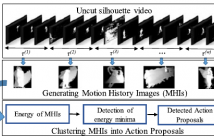
- Read more about PMHI: Proposals From Motion History Images for Temporal Segmentation of Long Uncut Videos
- Log in to post comments
This letter proposes a method for the generation of temporal action proposals for the segmentation of long uncut video sequences. The presence of consecutive multiple actions in video sequences makes the temporal segmentation a challenging problem due to the unconstrained nature of actions in space and time. To address this issue, we exploit the nonaction segments present between the actual human actions in uncut videos. From the long uncut video, we compute the energy of consecutive nonoverlapping motion history images (MHIs), which provides spatiotemporal information of motion.
poster_SPL.pdf
- Categories:
 11 Views
11 Views
- Read more about REAL-TIME REGISTRATION OF RGB-D IMAGE PAIR FOR SEE-THROUGH SYSTEM
- Log in to post comments
This paper presents a dense method of real-time registration of RGB-D image pair. So far, we have proposed the “see-
through system”, in which multiple images acquired from RGB-D sensors are integrated to present images that is useful for confirming the shape or the positions of objects behind obstacles. However, errors of positional relation of sensors re-
- Categories:
 8 Views
8 Views
- Read more about SEMANTICALLY INVARIANT TEXT-TO-IMAGE GENERATION
- Log in to post comments
- Categories:
 10 Views
10 Views